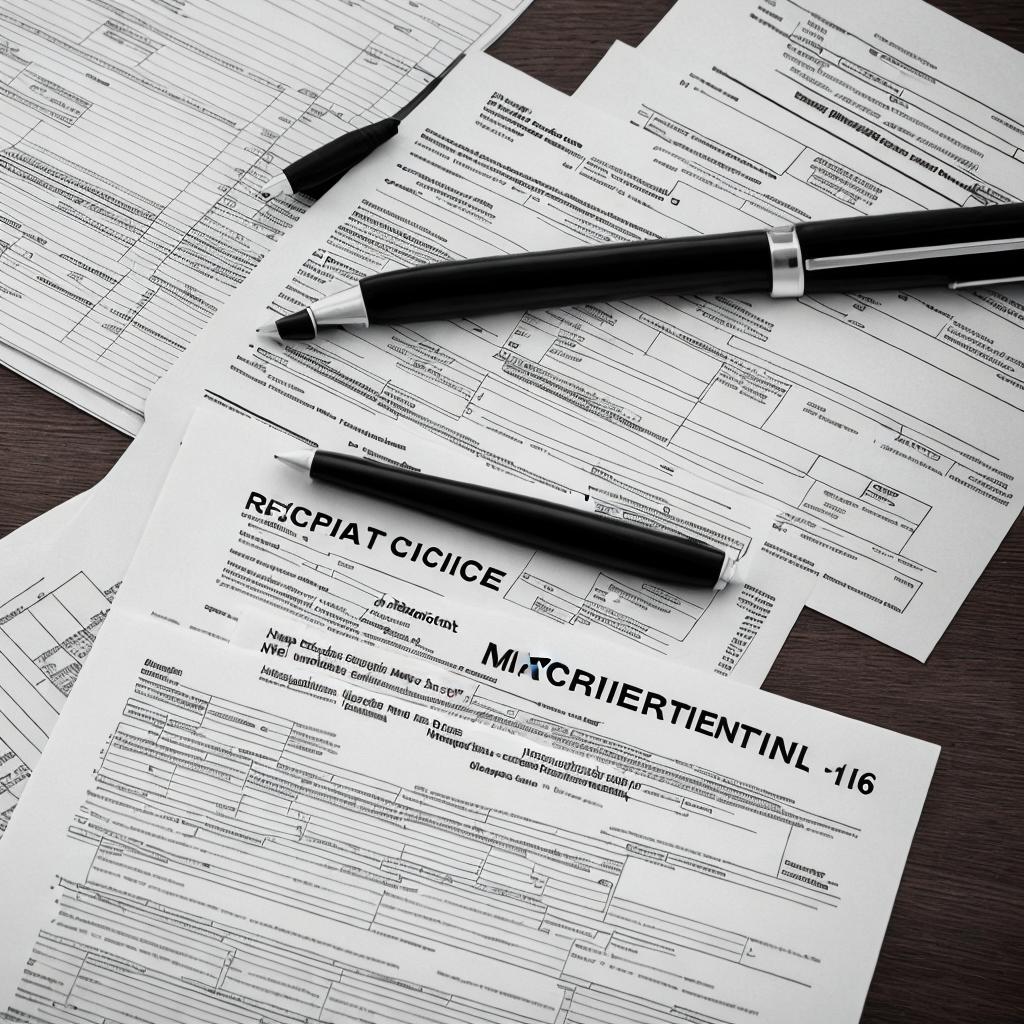7 Surprising Documents for Your Medicaid Application

Are you ready to embark on the exciting journey of applying for Medicaid? Brace yourself because you’re about to discover 7 surprising documents that you might not have expected to need.
From proof of income and financial resources to medical records and documentation of disabilities, this article will guide you through the maze of paperwork required for your Medicaid application.
So grab a pen, take a deep breath, and let’s dive into the unexpected world of Medicaid documentation.
Key Takeaways
- Proof of income and financial resources, such as pay stubs and tax returns, is crucial for a Medicaid application.
- Proof of citizenship or immigration status is required, and documents like a U.S. passport or certificate of naturalization are necessary.
- Birth certificate, valid passport, or certificate of naturalization are required to establish citizenship for Medicaid eligibility.
- Verification of immigration status requires submitting relevant documents like a valid passport or permanent resident card.
Proof of Income and Financial Resources
When applying for Medicaid, you’ll need to provide proof of your income and financial resources. This is an important step in the application process to determine your eligibility for the program.
Medicaid is a government-funded healthcare program that assists low-income individuals and families with their medical expenses. To ensure that only those who meet the income requirements receive benefits, the program requires documentation of your income and financial resources.
When providing proof of income, you’ll need to submit documents such as pay stubs, tax returns, or statements from your employer. These documents should accurately reflect your current income and any deductions or allowances that may apply. It’s important to include all sources of income, such as wages, tips, self-employment earnings, rental income, and any government assistance you may receive.
In addition to income, you’ll also need to provide information about your financial resources. This includes bank statements, investment accounts, property ownership documents, and any other assets you may have. Medicaid considers these resources when determining your eligibility for the program.
It is crucial to provide accurate and complete documentation when applying for Medicaid. Any discrepancies or missing information could delay or even jeopardize your application. Therefore, take the time to gather all the necessary documents and ensure they’re up to date before submitting your application.
Proof of Citizenship or Immigration Status
To apply for Medicaid, you need to provide proof of your citizenship or immigration status. This is important because Medicaid is a government program that’s only available to U.S. citizens, nationals, or qualified immigrants.
To verify your citizenship or immigration status, you may need to provide documents such as a U.S. passport, certificate of naturalization, or immigration documents issued by the U.S. Department of Homeland Security.
Citizenship Requirements for Medicaid
Gathering proof of your citizenship or immigration status is essential when applying for Medicaid. To ensure that you meet the citizenship requirements, here are three key items you need to consider:
- Birth certificate: If you were born in the United States, your birth certificate is the most straightforward proof of your citizenship. Make sure to have a certified copy of your birth certificate ready to submit with your Medicaid application.
- Passport: If you’re a naturalized citizen or have obtained citizenship through immigration, your valid passport can serve as proof of your status. Ensure that your passport is current and provides the necessary information to verify your citizenship.
- Certificate of Naturalization: If you have gone through the naturalization process, you’ll need to provide a copy of your Certificate of Naturalization. This document confirms your citizenship and should be included in your Medicaid application.
Immigration Status Verification Process
Make sure you provide the necessary documents to verify your immigration status when applying for Medicaid.
The immigration status verification process is an essential step in determining your eligibility for Medicaid benefits. To prove your immigration status, you’ll need to submit documentation such as your valid passport, permanent resident card (green card), employment authorization document (EAD), or other relevant immigration documents.
These documents are crucial in establishing your legal presence in the United States and ensuring that you meet the eligibility requirements for Medicaid. It’s important to gather these documents in advance and make copies to include with your Medicaid application.
Proof of Residency
When applying for Medicaid, you’ll need to provide proof of residency using specific documents. Proof of residency is essential to establish that you currently live in the state where you’re applying for Medicaid. Here are three types of documents that you can use as proof of residency:
- Lease or rental agreement: A lease or rental agreement is an official document that confirms your current address. Make sure the agreement includes your name, the address, and the dates of the lease or rental period.
- Utility bill: A recent utility bill, such as an electricity, water, or gas bill, can serve as proof of residency. It should display your name and current address. Ensure the bill is dated within the last three months.
- Government correspondence: Any official correspondence you have received from a government agency can also be used as proof of residency. This can include letters from the Social Security Administration, the Internal Revenue Service, or the Department of Motor Vehicles, among others.
Social Security Number and Birth Certificate
When applying for Medicaid, you’ll need to provide certain identification documents, including your Social Security Number and Birth Certificate. These documents serve as proof of your citizenship or legal status in the United States.
Your Social Security Number is used to verify your identity and eligibility for benefits, while your Birth Certificate confirms your date of birth and establishes your relationship to your parents.
Make sure you have these documents ready when applying for Medicaid to ensure a smooth application process.
Required Identification Documents
To complete your Medicaid application, you’ll need to provide common identification documents such as your social security number and birth certificate. These documents are crucial in verifying your identity and determining your eligibility for Medicaid.
Here are three important points to keep in mind regarding the required identification documents:
- Social Security Number (SSN): Your SSN is a unique nine-digit number issued by the Social Security Administration. It’s used to track your earnings and benefits. Make sure to provide your correct SSN when applying for Medicaid as it’s a crucial piece of information for the application process.
- Birth Certificate: Your birth certificate serves as proof of your age, place of birth, and parentage. It’s essential to provide a valid, government-issued birth certificate to establish your eligibility for Medicaid.
- Validity and Legibility: Ensure that your identification documents are valid, current, and legible. Any expired or illegible documents may result in delays or rejections of your Medicaid application.
Proof of Citizenship/Legal Status
To establish your Proof of Citizenship/Legal Status for your Medicaid application, you’ll need to provide your social security number and birth certificate. These documents are necessary to verify your eligibility for Medicaid benefits.
Your social security number serves as a unique identifier and helps confirm your legal status and citizenship in the United States. It’s important to ensure that the social security number you provide is accurate and up-to-date.
Additionally, your birth certificate provides concrete evidence of your citizenship and is crucial in proving your eligibility for Medicaid.
When submitting these documents, make sure they’re certified copies or the original documents themselves.
Official Identification Documents
What official identification documents do you need for your Medicaid application? When applying for Medicaid, it’s important to provide official identification documents to verify your identity and eligibility. Here are three essential documents you’ll need:
- Social Security card: Your Social Security card is a crucial piece of identification that provides proof of your Social Security number. This document helps verify your identity and ensures that you’re eligible for Medicaid benefits.
- Driver’s license or state ID: A valid driver’s license or state-issued identification card serves as a primary form of identification. It confirms your name, date of birth, and residential address, which are important details for your Medicaid application.
- Passport or birth certificate: A passport or birth certificate is necessary to establish your citizenship or legal status. These documents provide proof of your nationality and can be used as a secondary form of identification for your Medicaid application.
By submitting these official identification documents with your Medicaid application, you can ensure that your eligibility is properly assessed.
Once you have gathered these identification documents, you can move on to gathering your medical records and documentation of disabilities to support your application.
Medical Records and Documentation of Disabilities
Once you have gathered your official identification documents, it is important to also collect your medical records and documentation of disabilities to support your Medicaid application. These documents provide crucial evidence of your medical condition and disability, ensuring that you receive the necessary healthcare coverage.
When it comes to medical records, you should obtain copies of all relevant documents, including doctor’s notes, test results, and treatment plans. These records help establish the severity and duration of your condition, as well as any ongoing treatments or medications you require. Additionally, gathering documentation of any disabilities you have is equally important. This can include letters from specialists, therapists, or rehabilitation professionals, as well as assessments or evaluations that outline the impact of your disability on your daily life.
To emphasize the significance of medical records and disability documentation, here is a table highlighting their importance in the Medicaid application process:
| Importance of Medical Records and Disability Documentation |
|---|
| Demonstrates the severity and duration of your condition |
| Provides evidence of ongoing treatments or medications |
| Establishes the impact of your disability on your life |
Proof of Current Insurance Coverage
When you have gathered your medical records and documentation of disabilities, it’s important to also provide proof of your current insurance coverage to support your Medicaid application. The proof of current insurance coverage demonstrates that you already have some level of coverage and can help establish your eligibility for Medicaid.
Here are three items you can include as proof:
- Insurance ID Card: Photocopy both sides of your current insurance ID card, which includes your name, policy number, and coverage details. This card acts as a physical proof of your insurance coverage and serves as an essential document for your Medicaid application.
- Insurance Policy Document: Include a copy of your current insurance policy document. This document outlines the terms, conditions, and coverage details of your insurance plan. It provides additional evidence of your existing coverage and can help Medicaid determine the level of coverage you currently have.
- Premium Payment Receipts: If you pay premiums for your insurance coverage, include copies of your premium payment receipts. These receipts show that you’re actively maintaining your insurance coverage by making regular payments. They provide further evidence of your commitment to maintaining coverage and can strengthen your Medicaid application.
Frequently Asked Questions
What Are the Income Limits to Qualify for Medicaid?
To qualify for Medicaid, you need to meet certain income limits. These limits vary depending on your state and household size. It’s important to gather all necessary documents to prove your income during the application process.
Can I Apply for Medicaid if I Am Not a U.S. Citizen?
Yes, you can apply for Medicaid even if you are not a U.S. citizen. The eligibility requirements vary by state, but in general, you need to meet certain residency and income guidelines.
Can I Use a Utility Bill as Proof of Residency?
You might think a utility bill can prove residency, but it’s not enough for Medicaid. They require additional documents like a lease agreement or a signed letter from your landlord.
Can I Provide a Copy of My Social Security Card Instead of the Original?
Yes, you can provide a copy of your social security card instead of the original. Make sure the copy is clear and legible. It’s important to have the necessary documents for your Medicaid application.
Do I Need to Provide Medical Records for All My Previous Conditions or Only the Current Ones?
You only need to provide medical records for your current conditions. Previous conditions are not necessary. Make sure to gather all the relevant documents to support your application.



